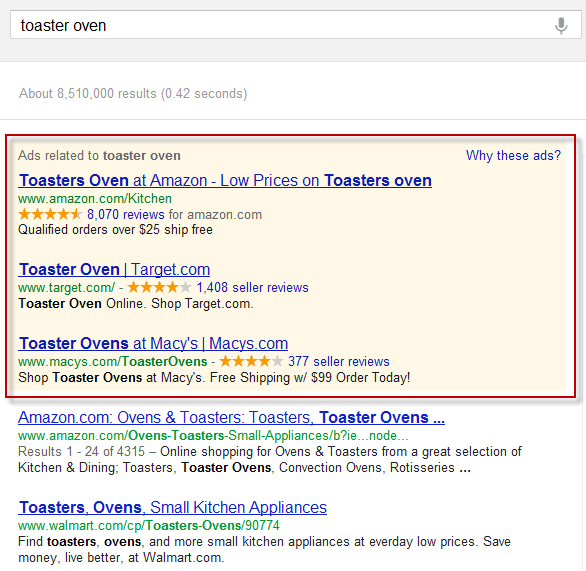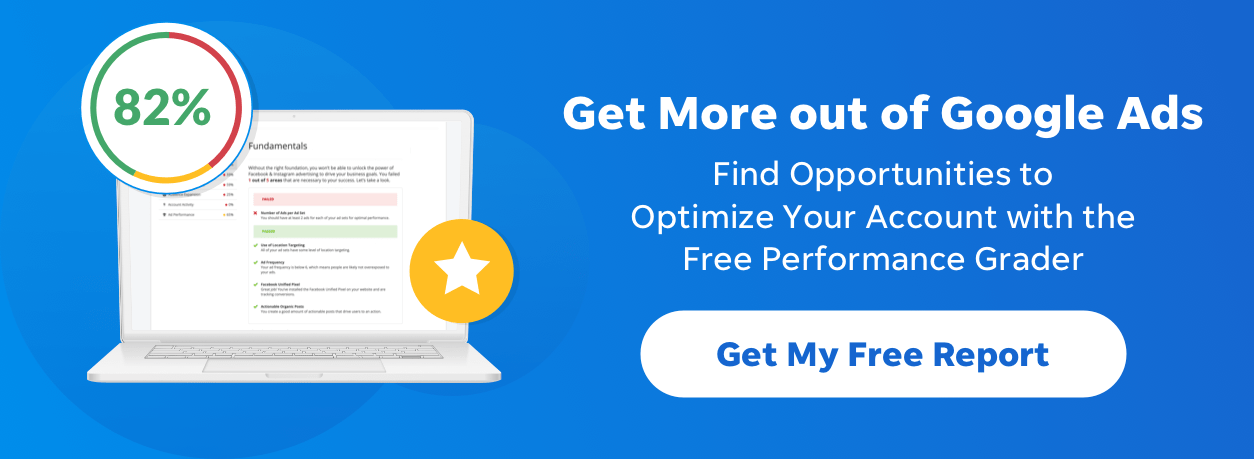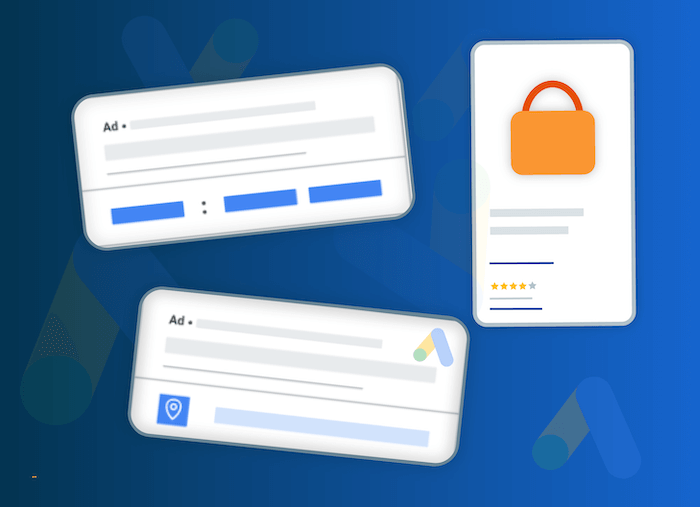
5 Reasons to Diversify Your Search Strategy with PPC Advertising
Yesterday we published the results of a study showing how sponsored advertisements on Google (PPC ads) are taking over territory previously reserved for organic listings, AKA “free clicks.” This is both good news and bad news for marketers. On the plus side, Google continues to roll out more and better types of search advertising to help marketers target their customers. On the negative side, you (obviously) have to pay for those clicks.
But the fact is, organic clicks aren’t really “free” either – gone are the days when it was relatively easy to rank on the first page in Google for your target keywords. Given the increasing costs and complications involved with SEO, it’s important to diversify your marketing channels. You can’t rely on organic search alone for traffic and leads – you never know when the next big algorithm update is going to murder your rankings.
Here are five reasons to shift some of the time and budget you spend on SEO to PPC.
#1: For Commercial Queries, Paid Clicks Outnumber Organic Clicks By Nearly 2 to 1
Organic clicks still account for more clicks overall in the search results – but different types of keywords have different value to businesses. For search queries that show high commercial intent – i.e., they indicate that the person searching wants to purchase something – more and more of the page (85% of above-the-fold pixels!) is devoted to sponsored listings. The organic results for transactional keywords like “best email software” or “waterproof digital camera” are mostly pushed below the fold. The top 3 ad spots for a commercial query take 41% of the clicks, and the Product Ad Listings take another 20%. Overall, sponsored results account for 65% of clicks on these keywords, compared to 35% for organic results.
#2: Google’s Sponsored Ad Formats Keep Getting Better
You have minimal control over how your organic search listings appear in Google. (For example, they’ve recently started applying new titles, when they think they can serve up a better one than the title you put on the page.) But you have lots of attractive choices when it comes to ad types. Here are just a few of the ad options that Google now offers:
- Mega Site Links: This huge ad format offers up to 10 additional places to click, greatly increasing your chances of presenting a relevant link.
- Remarketing: Remarketing or retargeting allows you to track site visitors with a cookie and chase them around the Web, displaying relevant banner ads until they click and convert.
- Social Ad Extensions: With social extensions you can display who has +1’d your site, lending credibility and potential name recognition – it also makes your ad look less like an ad (see below).
#3: About Half Your Audience Can’t Tell the Difference Between Paid and Organic Search
A lot of people think that “nobody clicks on Google ads.” And it’s true that eye tracking studies suggest most people ignore the sponsored ads in the right column. However, one study showed that about half of people don’t recognize the ads above the search results as ads – in other words, they couldn’t tell the difference between the organic and paid results.
If users don’t know your ad is an ad, they can’t be suspicious of its intent – and why should they be, if it gives them what they want? Secure one of those coveted positions above the organic results for a commercial query, you’ll take the lion’s share of clicks without sacrificing trust with users.
#4: SEO Is a Full-Time Job – Or Several Full-Time Jobs
As the number of sites competing for rankings has sky-rocketed, Google’s algorithms have gotten more and more complex, and it’s become much harder to achieve – and maintain – high rankings in the organic results. Where in the past businesses could get away with hiring a single SEO point person (usually a pretty junior position), now it often requires a full team to develop and execute on an SEO strategy (a content writer, a link builder, etc.). We believe that PPC – once your campaigns are set up and running – requires significantly less time to manage. According to Perry Marshall, author of The Ultimate Guide to Google AdWords, “if you focus on the areas that bring the most traffic, I find that once you find a rhythm, you can really do this with a few minutes a day, at most a few hours a week, and that’s with a large campaign with a $10,000+ spend per month.”
#5: Algorithm Updates Don’t Affect Your PPC
Google’s rolling algorithm updates ensure that SEO gets harder and more confusing over time. The Panda and Penguin updates in particular have addressed the kind of “optimizations” that have tended to work for site owners and marketers in the past. The only way to find out if Google thinks your SEO techniques are over the line (AKA “over-optimization”) is to take a hit on rankings, and then scramble to figure out – and fix – what you’ve been doing wrong. Google does suspend AdWords accounts on occasion, sometimes without clear reason, but in PPC you’re much less likely to experience major flux or drop-offs in rankings and traffics due to changes on Google’s end.
These are all good reasons to re-allocate some of your marketing budget to PPC, if you’ve been depending on SEO for traffic and lead generation. We would never advocate giving up on SEO – you won’t hear us saying “SEO is dead” anytime soon. But strive for a balance between your search marketing channels, and you can minimize the damage incurred as SEO gets incrementally harder.
In case you missed it, here’s our infographic on the War on Free Clicks again (click to enlarge).
Meet The Author
Elisa Gabbert
Elisa Gabbert is WordStream’s Director of Content and SEO. Likes include wine, karaoke, poker, ping-pong, perfume, and poetry.
See other posts by Elisa Gabbert
More Articles Like This
Comments
Please read our Comment Policy before commenting.








